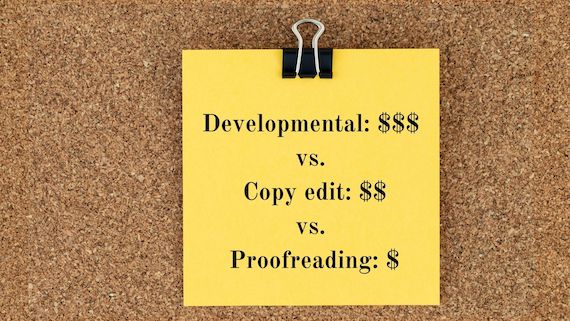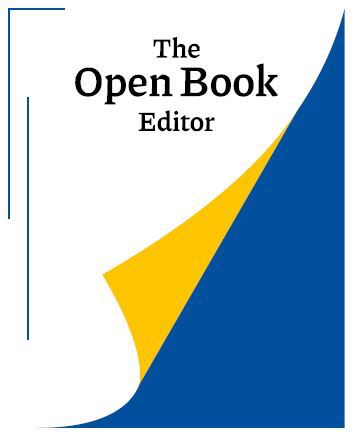The cost of a book editor is an aspect of the writing and editing process many authors are unsure about. It can be hard to know what to expect and what the average cost of a good editor should be, especially when it’s your first time.
If you hire someone in the lower price range, you might end up with a badly edited manuscript and need to hire another editor all over again. And while a good editor is worth their weight in gold, no one wants to remortgage their home to afford it.
Still, a good book editor isn’t cheap, nor should they be. They are an invaluable part of helping you take your book to the next level. It will also give literary agents, publishers, and readers more confidence in your work if they know the book has been professionally edited.
Read on to find out the cost of a book editor and what you need to know to get the most out of working with one.
Note: All prices listed below are an approximate range you can expect to pay for the listed services; some editors charge less, others more. Use the advice in this article, our guide to finding a trustworthy book editor, and your judgement to determine if a price is fair.

Developmental edit
Price range: £.001 – £0.17/word, £11 – £30/page, £30 – £85/hour
[$0.015 – $0.24/word, $15 – $40/page, $40 – $120/hour]
What is developmental editing?
The cost of a developmental book editor is usually on the higher end because they will perform an in-depth analysis of every aspect of your story. This means they will focus on “big-picture” edits. This includes ensuring your narrative is seamless from start to finish, making sure you have believable characters, and flagging any potential plot holes.
As a standalone service, developmental editing does not include line edits or small-scale changes like correcting grammar or typos.
Tips for working with a developmental editor:
- A good developmental editor needs to have a firm understanding of the overall themes and tone of your manuscript. They will take the time to sit down and discuss these with you either beforehand or after completing the first read of your manuscript. If they don’t, wait for them to finish the first read and ask them what themes they think you have attempted to convey and how.
- Make sure to edit your book on your own before handing it over to a developmental editor. Do two to three rounds of self-editing just to clean up any grammar mistakes and typos—this applies even if you plan on hiring a proofreader later! Too many grammar issues and typos can be distracting, and you risk driving up the cost of your book editor if your manuscript proves too challenging to understand.
Copy edit
Price range: £0.01 – £0.06/word, £2 – £7/page, £22 – £70
[$0.015-$0.08/word, $2.50-$10/page, $30-$100/hour]
What is copy editing?
The cost of this type of book editor falls in the middle range because they take a mechanical approach to your book. This means they will focus on the small details of your manuscript. This can include checking for logical sentence structure and sussing out grammar mistakes and typos.
Do not expect a copy editor to help with big plot points, character arcs, believable dialogue, or other large-scale edits. Remember, this is what a developmental editor is for!
Tips for working with a copy editor:
- Only hire a copy editor once the structure of your book is in place. If you are still carrying out large-scale edits, such as cutting/adding/rewriting chapters, moving scenes around, or tinkering with your plotline, you risk introducing errors. Hold off on hiring a copy editor until you have the book’s big-picture elements the way you want them.
- Discuss intentional typos with your copy editor beforehand. If you’re incorporating foreign words into your book, or intentionally misspelling certain words to capture the ‘sound’ of a local vernacular, your copy editor needs to know.
Hint: Ask your copy editor to produce a style guide as part of the copy edit. A style guide is a document that summarises what stylistic approach is being used to edit the book. For example, it might say the book uses American English, the Oxford comma, and follows the Chicago Manual of Style. It will also list any exceptions and list common errors. Such a guide can teach you about your own writing, help you apply stylistic consistency to this and future manuscripts, and is extremely valuable to any future editors you work with.
Proofreading
Price range: £0.005/word – £0.03, £1 – £5/page, £15 – £60
[$0.01 – $0.05/word, $1.50 – $7/page, $20 – $80/hour]
What is proofreading?
A proofreader is the final editing step before your book is published or delivered to literary agents. The reason the cost for this book editing service is lower is that proofreaders are there to catch mistakes other editors have missed. It’s a faster, less thorough final pass.
A proofreader will focus on any final grammar, typo, font, and layout mistakes. By the time a book reaches a proofreader’s hands, they know it’s been edited by at least one other professional editor first. The expectation for proofreaders is that they’ll need to make as few corrections as possible.
Don’t expect a proofreader to make a lot of edits—this isn’t factored into the cost of this book editor! If there’s still a lot of work to be done on your manuscript, they will most likely give it back to you and recommend you seek a developmental or copy editor first.
Tips for working with a proofreader:
If possible, avoid hiring the same person to do both copy edits and proofreading. While the cost of two book editors is higher, you’ll want a fresh pair of eyes on your work before it heads off to publishers or agents.
Other things to know

- Before you take on the cost of any book editor, make sure they’re a good fit first. Ask them questions, get to know them and their process, and ask for a sample edit.
- Publishing may be a notoriously slow industry, but you should still aim to hire an editor as early as possible. Good editing takes time, and you need to account for your editor potentially finding big plot holes or inconsistencies—both of which can be time-consuming to fix. While it is possible to hire one on short notice, a tight deadline can drive up the price of your book edit.
- Once an editor completes a round of edits on your book, you may want to implement their suggestions and return the manuscript for another round of revisions. Most editors will charge an added fee to read revisions. Always discuss beforehand how much these will cost. If possible, get it in writing with a contract so there’s no confusion later.
- Be aware that the cost of a book editor can vary depending on your book’s genre. For example, historical fiction is considered a heavier genre that requires more fact-checking. Conversely, romance is lighter and, therefore, takes less time.
- You get what you pay for. Good editors don’t come cheap for a reason. While some prices may feel steep, hiring a knowledgeable book editor—even if they cost more—can be the best approach. A cheaper editor might not invest as much attention, which could mean you’ll have to hire another editor anyway.
- Furthermore, editors with extensive industry experience and knowledge can often share knowledge and experience about the publishing industry at large.
Find the right balance for you
A good editor is a worthwhile investment but, as with anything, it’s a toss-up between experience and a price that’s affordable. No matter what, make sure you properly vet any potential editors. You don’t want to cut corners with your book, and it’s important for you and your editor to be on the same page (both literally and figuratively).
Do you have a question about hiring an editor we haven’t answered here? Reach out to chat with The Open Book Editor. We’re here to help in whatever way makes it easier for you to perfect your book.


